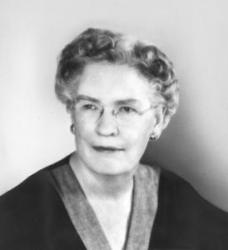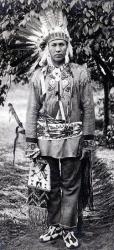1620 - 1659 Scripture: Luke 24:27 Author of "Let the Earth Now Praise the Lord" in The Lutheran Hymnal Held, Heinrich, was son of Valentin Held of Guhrau, Silesia. He studied at the Universities of Königsberg (c. 1637-40), Frankfurt a. Oder (1643), and Leyden. He was also in residence at Rostock in 1647. He became a licentiate of law, and settled as a lawyer in his native place, where he died about 1659, or at least before Michaelmas, 1661 (Koch, iii. 55-56; Allgemeine Deutsche Biographie., xi. 680; Bode, p. 87, &c).
One of the best Silesian hymnwriters, he was taught in the school of affliction, having many trials to suffer in those times of war. His only extant poetical work is his Deutscher Gedichte Vortrab, Frankfurt a. Oder, 1643. Only one hymn from that volume came into German use. Much more important are his other hymns, which are known to us through Crüger's Praxis, and other hymnbooks of the period. Mützell, 1858, includes Nos. 254-272 under his name.
Two of his hymns have been translated into English:—
i. Gott sei Dank durch alle Welt. Advent. Mützell, 1858, No. 263, quotes this in 9 st. of 4 1. from a defective ed. of Crüger's Praxis, c. 1659. In the ed. of 1661 it is No. 85, marked Henr. Helt. Since then it has appeared in almost all German hymnbooks (as in the Berlin Geistliche Lieder, ed. 1863, No. 132), and takes rank as one of the finest Advent Hymns. Translated as :—
1. All the World exalt the Lord, omitting st. vi. in Select Hymns from German Psalter, Tranquebar, 1754, p. 4, and the Supplement to German Psalter, ed. 1765, p. 1. In 1789, the translations of st. i., ii., iv., vii., ix. (altered) were included as No. 34 in the Moravian Hymn Book In the ed. of 1801 it was altered to "All the world give praises due" (ed. 1886, No. 44), and this text has been repeated in Dr. Pagenstecher's Collection, 1864, and Willing's Book of Common Praise, 1872.
2. Be our God with thanks adored. A translation of st. i.-iv. by A. T. Russell in his Psalms & Hymns, 1851.
3. Let the earth now praise the Lord. A good translation, omitting st. vii., by Miss Winkworth in her Chorale Book for England, 1863. Repeated in full in Schaff's Christ in Song, 1869, and, abridged, in the American Pennsylvania Lutheran Ch. Book, 1868, and Baptist Service of Song, 1871.
ii. Komm, o Komm, du Geist des Lebens. Whitsuntide. A fine hymn of Invocation to the Holy Spirit. Mützell, 1858, No. 267, quotes it in 9 st. of 6 1. from a defective edition of Crüger's Praxis published at Stettin c. 1664. In J. Niedling's Geistliche Wasserquelle, Frankfurt a. Oder, 1667, it is at p. 372 marked "H. Held" (not in Niedling's ed. 1663). In Luppius's Andächtig singender Christen Mund, 1692, p. 71, it is entitled "Devout Prayer and Hymn to God the Holy Ghost." Repeated in Freylinghausen's Gesang-Buch, 1704, and many subsequent hymnbooks, as in the Berlin Geistliche Lieder, ed. 1863, No. 363. It is sometimes erroneously ascribed to Joachim Neander. The translations in common use are:—
1. Holy Spirit, once again. A full and good translation by Miss Winkworth in the 2nd Ser., 1858, of her Lyra Germanica, p. 53. Included in full in the Cantate Domino, Boston, U.S.A., 1859. In Miss Wink worth's Chorale Book for England, 1863, st. ii., vi., vii. are omitted. This form of the text is repeated in W. F. Stevenson's Hymns for Church & Home, 1873, Hatfield's Church Hymn Book, 1872, &c. In the Hymnal for St. John's, Aberdeen, 1865, it begins "Holy Spirit, in us reign."
2. Come, oh come, Thou quickening Spirit, True, &c. A translation of st. i., ii., iv., vii., ix. in Dr. Pagenstecher's Collection, 1864, No. 98, signed E. T. L.
3. Come, 0 come, Thou quickening Spirit, Thou for ever. A good tr., omitting st. iv.-vi. in the Pennsylvania Lutheran Church Book, 1868, and marked as tr. by "Charles William Schaeffer, 1866." [Lutheran Pastor at Germantown.]
4. Come, 0 come, Thou quickening Spirit, God from all eternity, omitting st. iii., by E. Cronenwett, in the Ohio Lutheran Hymnal, 1880.
Another translation is, "Come, Thou Spirit ever living," by R. Massie in the British Herald, Dec, 1865, p. 179. [Rev. James Mearns, M.A.]
--John Julian, Dictionary of Hymnology (1907)
=======================
Held, Heinrich , p. 507, ii. The account given in the Fischer-Tumpel Deutsche evangelische Kirchenlied des siebzehnten Jahrhun-derts , vol. i., 1904, p. 360, states that Held was born July 21, 1620, at Guhrau, in Silesia, settled as advocate at Fraustadt in Posen, became in 1657 town clerk at Altdamm, near Stettin, and died Aug. 16, 1659, at Stettin. This, if correct, explains why so many of his hymns are first traceable in Pomeranian books, and explains why his posthumous work on Prosody should have been prepared for publication in 1661 by a Stargard bookseller. [Rev. James Mearns, M.A.]
--John Julian, Dictionary of Hymnology, New Supplement (1907)
Heinrich Held


 My Starred Hymns
My Starred Hymns







